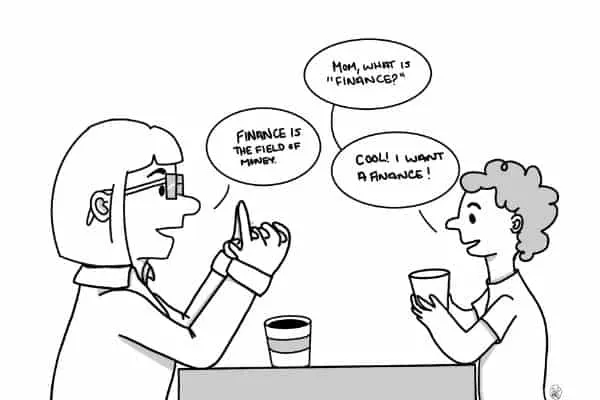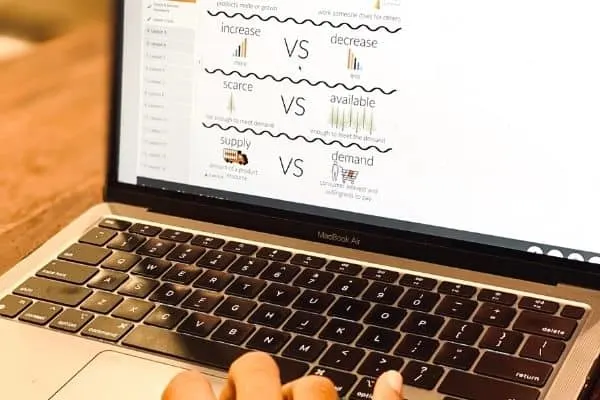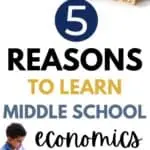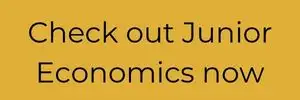Are you looking for a course that teaches economics for middle school? Today’s students need to learn foundational economics and financial skills from a young age in order to make great economic choices in the midst of a noisy world that urges them to spend as much as they can.
The Junior Economics course from Mr. D Math teaches kids the pre-business concepts they need to succeed. Here are five reasons why it might be a perfect fit for your homeschool.
I received a free rental of Mount Hideaway Mysteries: Exes and Oh No’s for review purposes and I was compensated for my time. All opinions are my own and I am not required to post a positive review.
Affiliate disclosure: This post may contain affiliate links, which means we may receive a commission if you click a link and purchase something that we have recommended. Please read our disclaimer for more details.
I still remember my first year as a business student at university. Although I’d been near the top of my class in high school, nothing had prepared me for the plethora of unfamiliar information that would soon be hitting me like water from a fire hose.
Intro to Business 101: stock markets, fiscal policy, profit and loss statements. Economics 101: supply and demand, gross domestic product, scarcity.
I thought that the courses I’d taken the year before had prepared me to enter the world of academia and business, but I was embarrassingly underprepared. I’m mortified even now, twenty years later, to think of how many times I asked the professor to re-explain the stock market concept to me while my classmates looked on, unimpressed.
But the truth is, most of these concepts–and more importantly, the skills needed to apply them in real-world situations successfully–are not taught in middle school or even high school.
At least, not in North America.
It turned out that my husband and many of his fellow international students had started learning these concepts at a young age, and felt quite comfortable discussing opportunity costs and monetary policy way before they ever signed up for Econ. 101.
Seeing the difference between his starting point and mine, I made a decision. As soon as our homeschooled children were old enough, we would teach them the basic economic concepts that would serve them well whether they decided to enter the traditional workforce or pursue a more entrepreneurial path.
Since then, we’ve tried to instill generally applicable economics lessons from a young age.
Case in point, here’s a conversation I had with my second daughter at a coffee shop when she was about seven.

Why is it Important to Teach Economics to Middle School Students?
Some may argue that middle school is too early to start teaching kids basic economic principles, but I strongly disagree. These are some of the most foundational skills we can teach our kids, and it’s never really too early to start.
Think of all the time we invest teaching kids skills they may never actually need to use again, and that their livelihoods will certainly never depend on: diagramming sentences, finding the tangent of a circle, memorizing the dates of every battle in our nation’s history. (My apologies here to every English, Math, and Social Studies teacher I just offended! I deeply love and value grammar, trig, and history, I promise.)
Why do we teach kids non-essential skills and knowledge such as these?
Because some children will someday need to use them in their careers.
Because they may never even develop knowledge of said career if they aren’t exposed to the intricacies of the subjects they study.
Because one day it may help them win big on Jeopardy! (True story. A university friend of mine knows all these things and way more and she became one of the most successful Jeopardy! contestants ever.)
But how many kids are finishing high school without ever having studied some of the personal finance concepts that will show up again and again in their daily lives?
Things like…
- How to apply for and responsibly use credit cards
- The power of compound interest and the benefits of investing early
- The difference between stocks, bonds, and mutual funds
- How to create a resume and interview well
- How to create and stick to a budget
- How to evaluate a business opportunity
Many kids are leaving high school without knowing how to do these things, and it’s impacting their ability to provide for themselves and their families in the long term.
That’s why I think it’s so important to start teaching economics as early as middle school.
The Economics for Middle School Course I’m Using with My Seventh Grader

Although we’ve mostly incorporated these lessons into our daily lives until now, this year I decided to kick it up a notch and actually have my seventh-grader to take an economics course. Our province requires some type of career prep education each year, and the Junior Economics course offered by Mr. D Math aligns really nicely with the topics we were expected to cover this year.
The Junior Economics course is designed for students at the 5th to 8th-grade level and covers many of the topics I mentioned plus others. Each interactive lesson covers one big idea relating to economics, careers, finances, or business.
Children will enjoy the interactive games and assignments they get to do while honing their critical thinking skills. These lessons are expounded on further in the follow-up course, Economics for High School.
Here are five reasons why you might want to sign your child up for the Mr. D Math Junior Economics course for middle school.
1. You Can Expose Children to Key Economic Concepts from An Early Age
It’s never too early for children to start learning about the fundamental concepts of economics that govern the financial realities they’ll face in their everyday lives.
It used to be enough to give kids a piggy bank and teach them about saving for a rainy day, but in a world that’s so obsessed with the acquisition and spending of money, it’s critical that kids learn early how to manage money responsibly.

2. They Will Develop Financial Literacy Skills
When I was a kid, adults used to joke about how challenging it was to balance a checkbook. While that’s true, it’s also nothing compared to the complexities of managing bank accounts today.
We opened bank accounts for our kids when they were around seven or eight years old. They got debit cards and online banking logins. We set up four accounts so they could track their spending, saving, investing, and giving funds.
They wrote their pins and passwords down and locked them up in our safe for, well, safekeeping. We made little booklets for them to track the transactions in each of their accounts.
We thought we’d created a system that was pretty clever.
But even now, several years later, they are still working to master these financial literacy skills. For example, we tap our debit cards so frequently now that they tend to forget their pins, and then they get locked out of their bank accounts. Then they need to contact the bank and get the pin reset.
Or they lose track of how much money is left in their spending account and their card gets declined when they try to pay for something. Or they find out that even though they have money in the account, there’s a limit on how much they can spend each day.
While each of these hard-won lessons feels discouraging at the time, having a bank account is an excellent tool for teaching financial literacy skills. They are constantly getting real world feedback about how banking and money works.
If your kids haven’t started doing their own banking yet, the Junior Economics for middle school course will walk them through all the steps they need to set up a banking account and conduct simple banking procedures.

3. They Will Learn About Finding and Holding a Job
Another thing middle and high school students are eager to learn about is finding their first job. After all, they need to earn some money to put into those bank accounts!
In the Junior Economics course, middle schoolers learn to recognize that career and job choices are related to personal interest, skills, knowledge, and education. They begin to explore potential career opportunities and learn how to fill out job applications and write resumes.
They’ll also build a strong foundation in interviewing for jobs, managing paychecks, and being good employees.
4. They’ll Also Learn About Starting a Business
It’s important for students of all ages to know that there are a variety of ways to earn a living, including self-employment. Today’s young adults are increasingly entrepreneurial and teaching them about the basic concepts of business from an early age is a great way to set them up for success on this path if they choose to explore it.
The Junior Economics course teaches a variety of topics related to starting a business, such as business leaders and business operating costs, budgeting at home, creating your business, expenses and pricing, promoting your business, and business changes.
As someone who went to business school for five years and has been running businesses for the past 15 years, I am thrilled with this valuable resource –I just wish I’d had a chance to learn about this stuff in one of my high school classes!
Life–and school–sure have changed a lot, and I love that this course helps kids stay relevant and ahead of the trends in business and career development. In a few years, they’re going to be some super-prepared college students.
5. Learn Economics for Middle School from a Trusted Educator
If you have followed this site for any length of time, you have likely read some of my previous reviews of Mr. D Math’s courses. I’m not going to lie–I write about them and talk about them a lot!
For more of my Mr. D Math Reviews, check out these posts:
- Mr. D Math Review: Our Top Choice for Middle School Homeschool Math Curriculum
- The Online High School Writing Course You Don’t Want to Miss
- Online Math Courses for Homeschool: How Mr. D Math Makes My Life Easier
- Live Online Math Classes vs. Self-Paced: Which is Better?
Why?
Because I truly believe they are some of the best classes on the market for middle and high school students.
Mr. D (Dennis DiNoia) himself is a superb teacher, and all of his teaching staff create online classrooms designed to help students thrive.
The course platform is intuitive and easy to use. Even when my kids were not very technologically savvy, they loved how easy the Mr. D Math website was to navigate.
The courses are well planned out and executed. They follow a consistent format where kids watch an online video from their teacher, complete an activity or online game, and then evaluate their own answers.
There is no teacher guide or answer key because parents really don’t have to do anything. The teachers and the course platform handle everything from marking to quizzes to grading and reporting. Where applicable, additional resources are also provided to help them master the concepts being taught.
Overall, it’s just a very well produced course (and suite of courses)
***
If you’re interested in teaching your kids basic economics and helping them understand introductory economic theory while also improving their decision-making skills, you can’t go wrong with the Junior Economics for middle school course from Mr. D Math. Not only will they learn some personal finance lessons, but they’ll also learn more about their passions, skills, and interests and will develop a clearer picture of the future they’d like to build for themselves.

Sophie Agbonkhese is a writer, homeschooling mother of four, and a recovering overachiever (who occasionally relapses). She is the founder of My Cup Runs Over, a site dedicated to helping busy women simplify and enrich their lives. When she’s not writing or debugging websites, Sophie spends her time reading, dancing, bullet journaling, reading, gardening, listening to audiobooks, and striving fruitlessly to have a clean house for at least five minutes.




Joellel
Thursday 14th of October 2021
You are amazing to me, Sophie!! Such amazing work here, love. I want to have my kiddos do this course!
SOPHIE AGBONKHESE
Friday 15th of October 2021
Thanks, Joellel! It's really a great course. I feel like I've spent most of my adult life trying to gain this knowledge, whereas Ben learned it all in middle school and it's just intrinsic to him. 🤦♀️ At least I get to benefit from being married to someone who knows what they're going 😂